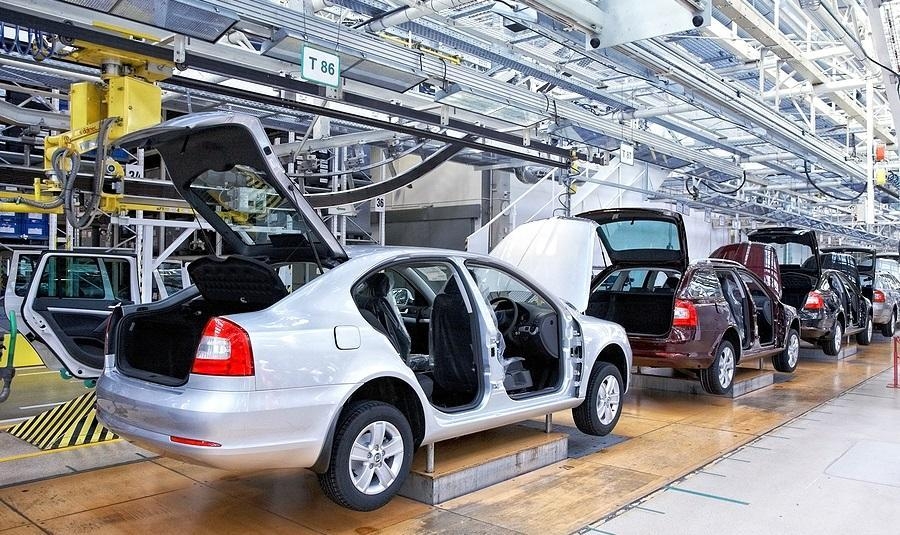Government/Policy

November 19, 2018
Industry Pressures Trump to Remove Section 232 Tariffs Before Signing USMCA
Written by Sandy Williams
The North American auto industry is urging the White House to drop the Section 232 tariffs before the official signing of the U.S.-Mexico-Canada Agreement (USMCA).
During testimony last week before the International Trade Commission, the Motor and Equipment Manufacturers Association, Alliance of Automobile Manufacturers and the American Automotive Policy Council asked the administration to exempt Canada and Mexico from Section 232 tariffs before the trade pact is signed.
Ford and General Motors are expecting the steel and aluminum tariffs to add $1 billion to their raw materials costs for this year. FCA and Toyota complain of seeing profits squeezed by tariffs.
“Costs have gone up and (are being) passed onto end consumers,” said Jack Hollis, general manager of the Toyota division for Toyota Motor North America. Toyota will assemble its new 2020 Corolla at two U.S. plants.
Higher costs that are passed to consumers could price vehicles beyond what customers are willing to pay. In tandem with higher interest rates for vehicle loans, the industry could see sales soften even further than they have in 2018.
Trump flaunted the Section 232 tariffs as leverage during the NAFTA renegotiations and threatened further tariffs on imports of autos and auto parts. Most stakeholders expected the steel and aluminum tariffs to disappear for Canada and Mexico once a new agreement was formed. With only two weeks to go until the signing at the G-20 in Argentina, pressure is mounting to have the issue resolved.
Concessions have already been made to the U.S. to increase the percentage of North American content in USMCA-produced vehicles as well as new rules on wages of auto employees.
“The industry is going to have to work really hard between now and the end of the year to define certain processes for how to comply, so we don’t add to the administrative burden,” said Ann Wilson, MEMA vice president for government affairs. “You can have regulations that are fairly straightforward or you can have regulations that are much more burdensome. And at this point, the industry can’t afford the burdensome route.”
If the steel and aluminum tariffs are not removed, the industry will relay their concerns to Congress, said Wilson.
“Our vision is that USMCA is intended to define the trading relationships among the three countries. And we are being asked to do a lot under that agreement in terms of rules of origin and labor value content,” said a representative for an unnamed international automaker quoted by Automotive News. “But now to pile on steel tariffs, and maybe auto tariffs, it just seems to me what’s the point of the USMCA if they are going to keep moving the goal posts?”
The Coalition of American Metal Manufacturers and Users, a group of 34 organizations, sent a letter on Nov. 19 to U.S. Trade Representative Robert Lighthizer urging the removal of Section 232 tariffs for Canada and Mexico. The coalition also strongly opposed replacing the tariffs with quotas.
The letter outlines several reasons why the coalition believes the tariffs should be eliminated:
- “Tariffs on imports of steel and aluminum are entirely inconsistent with the overall goals of the USMCA.”
- “The USMCA already requires that a certain amount of steel and aluminum of North American origin be used in automotive production in order for the resulting vehicles to be compliant with the rules of origin under the agreement.”
- “[Section 232 tariffs] have raised costs significantly for a wide array of industries…. This endangers the jobs of millions of workers in those industries, who collectively represent a far greater share of the American workforce than those who benefit from the restrictions.”
- “The tariffs raise the costs of manufacturing in the U.S. and place our manufacturers at a competitive disadvantage with respect to finished products which are made outside of the U.S. and imported without being affected by the tariffs.”
- “The continuation of these tariffs with respect to Mexico and Canada will create impediments to Congressional passage of the USMCA implementing bill given concerns expressed by members of Congress about the use of these tariffs with respect to our two closest allies. The business community supports the removal of this potential impediment to Congressional approval of the USMCA.”
- “Canada and Mexico have responded to these tariff actions and have imposed billions in tariffs on U.S. exports in response…hurting American exporters, putting additional American jobs at risk and further harming our global competitiveness in some of our most successful export sectors.”
- “Our industries want to support this new agreement when it faces Congressional review, but that depends heavily on having an overall package that benefits, rather than harms, our long-term ability to survive in a global economy,” concluded the Coalition in its letter. “We strongly urge you to take these concerns into account and to remove these restrictions prior to signing the final USMCA.”
The steel industry commended the USMCA at the CIT hearings, especially the provisions that raise North American auto content to 75 percent and require 40-45 percent of auto content be made by workers earning at least $16 per hour.
“We strongly believe that these modifications will bolster the competitiveness of both the U.S. steel industry and that of other North American steel producers,” said Philip Bell, president of the Steel Manufacturers Association.
“These new origin rules will increase incentives for the use of North American steel in these products, which will benefit steel producers in the United States by increasing demand for domestically produced steel,” said Kevin Dempsey, senior vice-president for public policy and general counsel at the American Iron and Steel Institute.







